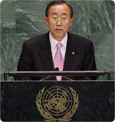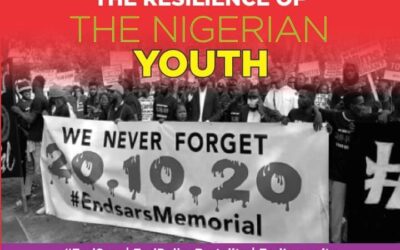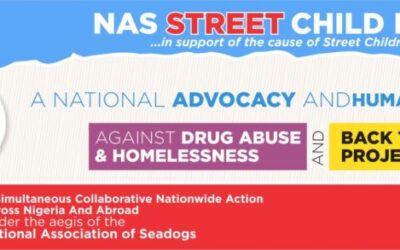When the United Nations (UN) Secretary General Ban Ki-moon today inaugurates a steering group on efforts towards curbing poverty, diseases and illiteracy in Africa by 2015, there will be a loud silence from what may be the most important stakeholder: The continent's government leaders.
In a curious decision, the Millennium Development Goals (MDG) Africa Steering Group will be launched this morning at the world body's headquarters, without the presence of the continent's Heads of States or their representatives.
The governments ought to be the engine room for the initiation, execution and monitoring of the projects.
The MDGs are a set of globally agreed positive targets to be met by 2015.
A UN MDG progress report this week shows that sub-Saharan Africa is the slowest in attaining the goals, with the projected shortfalls said to be most severe in the continent. For instance, the report noted that the odds that a woman will die from treatable and preventable complications during pregnancy and at childbirth are one to 16 in sub-Saharan Africa, compared to one in 3,800 in the developed world.
The plan for the steering group was on Wednesday announced at the UN headquarters, by a top official of the United Nations Development Programmes (UNDP) Guido Schmidt-Traub.
He disclosed that a decision had been taken to involve only multilateral organisations now and exclude representatives of African governments. In his words, "there will be little Government involvement."
The official said that Ban decided to set up the steering group after the UNDP issued a report on the continent in June. In it, the UN body noted that despite faster growth and strengthened institutions, Africa, at its present rate, would still fail to achieve any of the goals adopted by world leaders at the Millennium Summit in 2000.
But reporters repeatedly questioned the lack of representation of African governments on the steering group and also the fact that the World Trade Organisation (WTO) was not advertised or invited to participate. The argument was that by not inviting the WTO, Africa's preference to trade more and depend on foreign aid less was being ignored.
Schmidt-Traub, who simply said that the Steering Group was not intended to include representation of African government, gave no explanation.
He had earlier traced Africa's failure to meet the desired pace on the MDGs partly to the fact that the African Governments could not determine the timing or when to expect the flow of aid to enable them plan ahead. Schmidt-Traub said that African governments had great difficulty in setting national development agenda because of inconsistent and unpredictable aid flows.
In response to a question on the non-invitation of African representatives at the UN to the meeting, the UNDP official said that a representative of the African Union (AU) and the President of the African Development Bank would be in attendance. None of the two is a representative of any African government.
But the UNDP official promised that the Steering Group would ensure future predictability of aid by raising "its voice to highlight this issue and call on donors to address it."
The official said that no decision was made to exclude organisations such as WTO, although the programme of the launching of the group has no information about the global trade body.
The UNDP official said that the idea was not to duplicate efforts and there were existing co-ordination efforts to include WTO. "If the group decides that the trade issue should be added to its mandate, WTO would be brought into the discussion," he added.
The UN Secretariat is dubbing the Steering Group launch as an "unprecedented" gathering of global development and finance leaders to discuss strategies to get especially sub-Saharan African nations like Nigeria on track with the MDGs.
Schmidt-Traub agreed that by simply implementing existing commitments from Africans and its development partners, those goals are within reach. This is why the UN wants to use the Steering Group to focus squarely on implementation, he said.
Participants at the meeting include Ban as chairman, the President of the World Bank, UNDP Administrator, International Monetary Fund (IMF) deputy Managing Director, a representative of the EU presidency and the President of the Islamic Development Bank.
The UNDP official said: "It is an unprecedented gathering bringing together the heads, the apex I would say, of the entire international development system," to focus on three objectives. These are: The international system's support for African governments in implementing practical programmes to achieve the goals in five areas: health, education, infrastructure, agriculture and food security; the need to ensure aid predictability so that African governments can plan years ahead for additional hospitals, schools and training doctors, teachers and nurses; and enhancing collaboration among the group's members at the country level.
After the launching of the Steering Group, a follow-up will be led by a second group called the MDG Africa working group, led by Deputy Secretary-General Asha-Rose Migiro, an African and would meet for the first time on September 20. This Working Group would involve senior operational leaders of the organisations attending today's meeting, and other bodies such as the 30-member Organisation for Economic Co-operation and Development (OECD) of industrialised, market-economy countries. Representatives of African governments are yet not expected to be part of the working group, even though it is about a development agenda they are meant to implement.
Responding to the criticisms, the UNDP official said that the working group would hopefully look to ways to avoid duplication of international efforts aimed at ensuring sustainable development in Africa.
From Laolu Akande, New York
The Guardian
Friday, September 14, 2007




